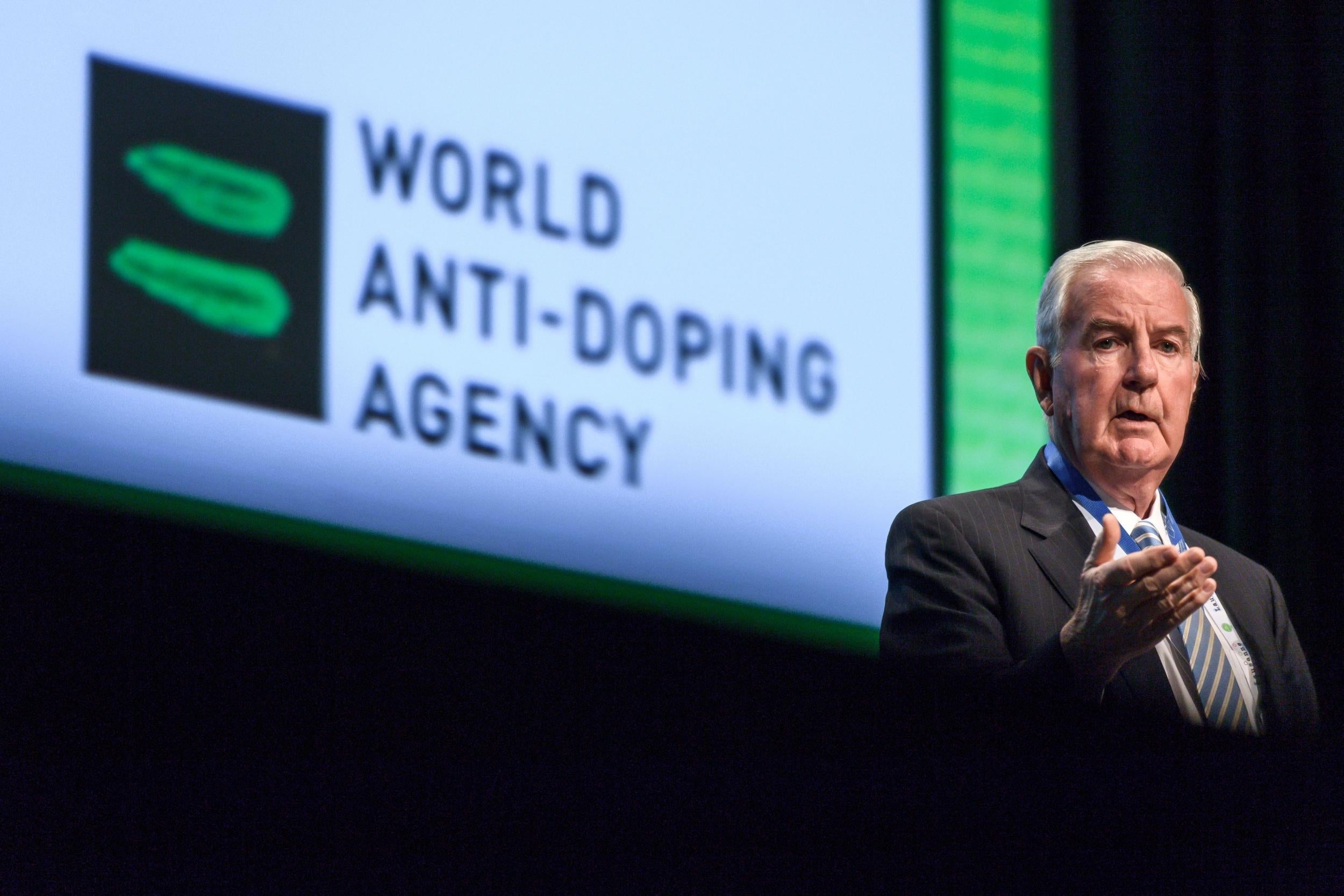The World Anti-Doping Agency’s decision to let Russia go unpunished for missing a deadline to allow access to the laboratory that ran its state-sponsored doping programme has been strongly criticised by athletes and experts.
British Paralympian Ali Jawad, a member of UK Anti-Doping’s athlete commission, said it proves there is “one set of rules for athletes, and another for Russia”.
Jim Walden, the lawyer acting for the former head of the Moscow laboratory turned whistle-blower Dr Grigory Rodchenkov, said he hopes the decision “represents the straw that broke the camel’s back” in terms of galvanising calls for an overhaul of the global anti-doping system.
Join Independent Minds
For exclusive articles, events and an advertising-free read for just
£5.99
€6.99
$9.99
a month
Get the best of The Independent
With an Independent Minds subscription for just
£5.99
€6.99
$9.99
a month
Get the best of The Independent
Without the ads – for just
£5.99
€6.99
$9.99
a month
Having suspended the Russian Anti-Doping Agency and its Moscow laboratory in November 2015, Wada controversially reinstated Rusada in September on two conditions: the Russian authorities would let independent experts retrieve the lab’s underlying testing data by December 31, and then release any stored samples needed for anti-doping cases by 30 June.
But the first deadline was missed when the Russian authorities blocked a five-member Wada team from using the data retrieval and storage devices they brought with them – a move that provoked outrage from those already angry about the September reinstatement deal.
That prompted Wada to fast-track a process which involved its Compliance Review Committee meeting in Montreal last week to make a recommendation on whether Rusada should be suspended again and the agency’s executive committee holding a teleconference on Tuesday to discuss that recommendation.
The Russians, however, had already forestalled the possibility of fresh sanctions by compromising on the devices Wada’s experts would use in the laboratory, which allowed a smaller team to obtain the lab’s secrets last week and get them out of Russia for verification.
This made Tuesday’s decision a foregone conclusion, as Wada had never punished a laboratory, national anti-doping agency or sports federation for missing a deadline, providing they had taken quick “corrective action” to comply with the initial request, and so it proved, with Wada opting to uphold the September agreement.
In a statement, Wada president Sir Craig Reedie acknowledged “several members of the ExCo voiced their disappointment that the deadline had been missed” but said he hoped “athletes and others see that we are making good progress”.
British sports minister Mims Davies was among the first to react to Tuesday’s decision to spare Russia, for now, describing the retrieval of the data as “positive” but urging Wada “not to take their foot off the pedal”.
US Anti-Doping Agency chief executive Travis Tygart echoed those sentiments but warned “there is still a long way to go”, while Usada’s general counsel Bill Bock tweeted that Wada had “missed a massive chance to demonstrate it means business”.
Jawad, a world and European powerlifting champion who won a silver medal at Rio 2016, agrees with Bock.
In a statement released to Press Association Sport, he said: “Athletes are constantly reminded about strict liability, about rightly sticking to the rules.
“Russia has denied any strict liability in their state-run doping programme, which has become the biggest doping scandal in history – if not the biggest scandal in sporting history. They have consistently made the process difficult and have missed deadlines – ‘hard deadlines’ as stated by the WADA president.
“How will athletes trust the integrity of Wada ever again, when they are constantly failed by the organisation that claims to protect them? Far from a breakthrough for clean sport, today Wada’s credibility is in tatters.
“Wada has imposed one set of rules for athletes, and another for Russia. Given this, the international athlete community is furious with Wada.”
Walden also believes Wada’s handling of the crisis has revealed a double standard: one for Russia and another for everyone else.
“Clean athletes have suffered many bad days, but I hope today’s decision represents the straw that broke the camel’s back,” he said.
“Wada said Rusada needed to be treated as ‘other’ signatories, but this ignores the well-documented history: systematic doping, systematic lying, retaliation against whistle-blowers and hacking WADA itself.”
Keep up to date with all the latest transfer news, rumours and done deals throughout the January window
Source: Read Full Article
